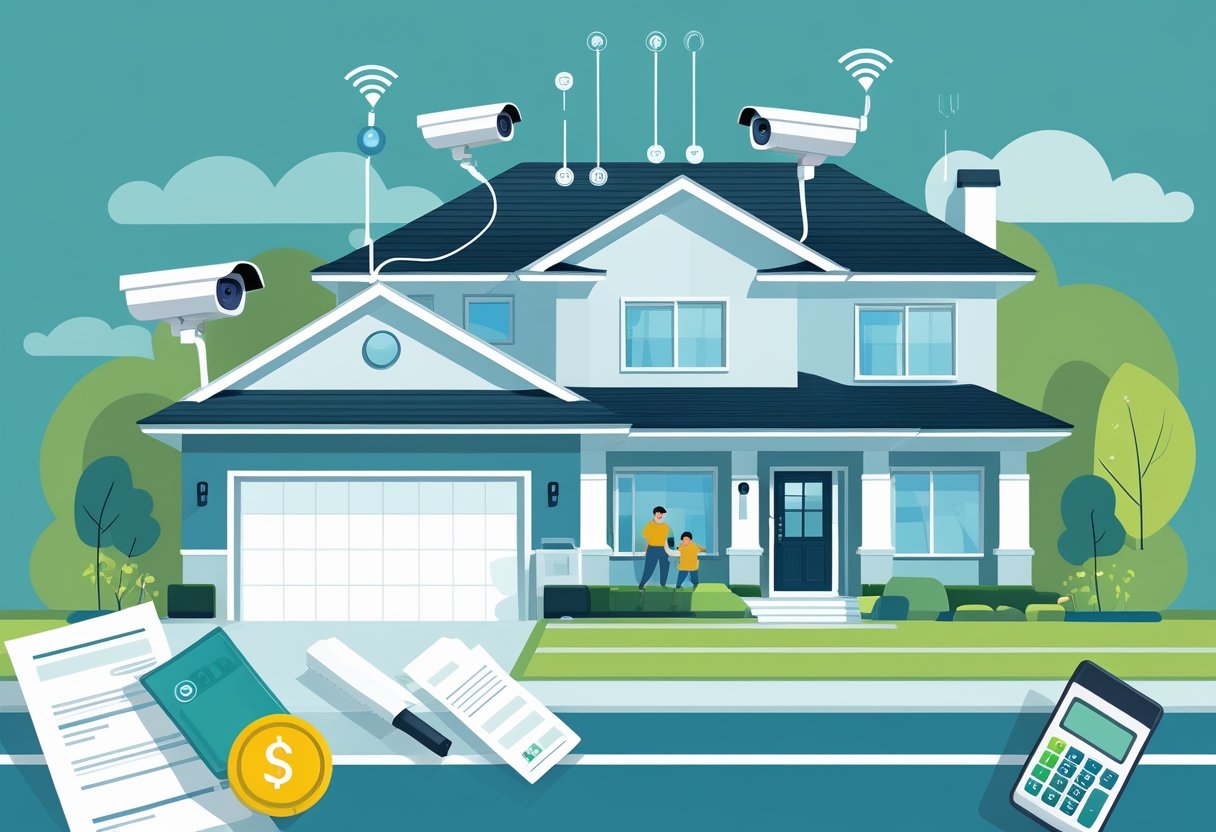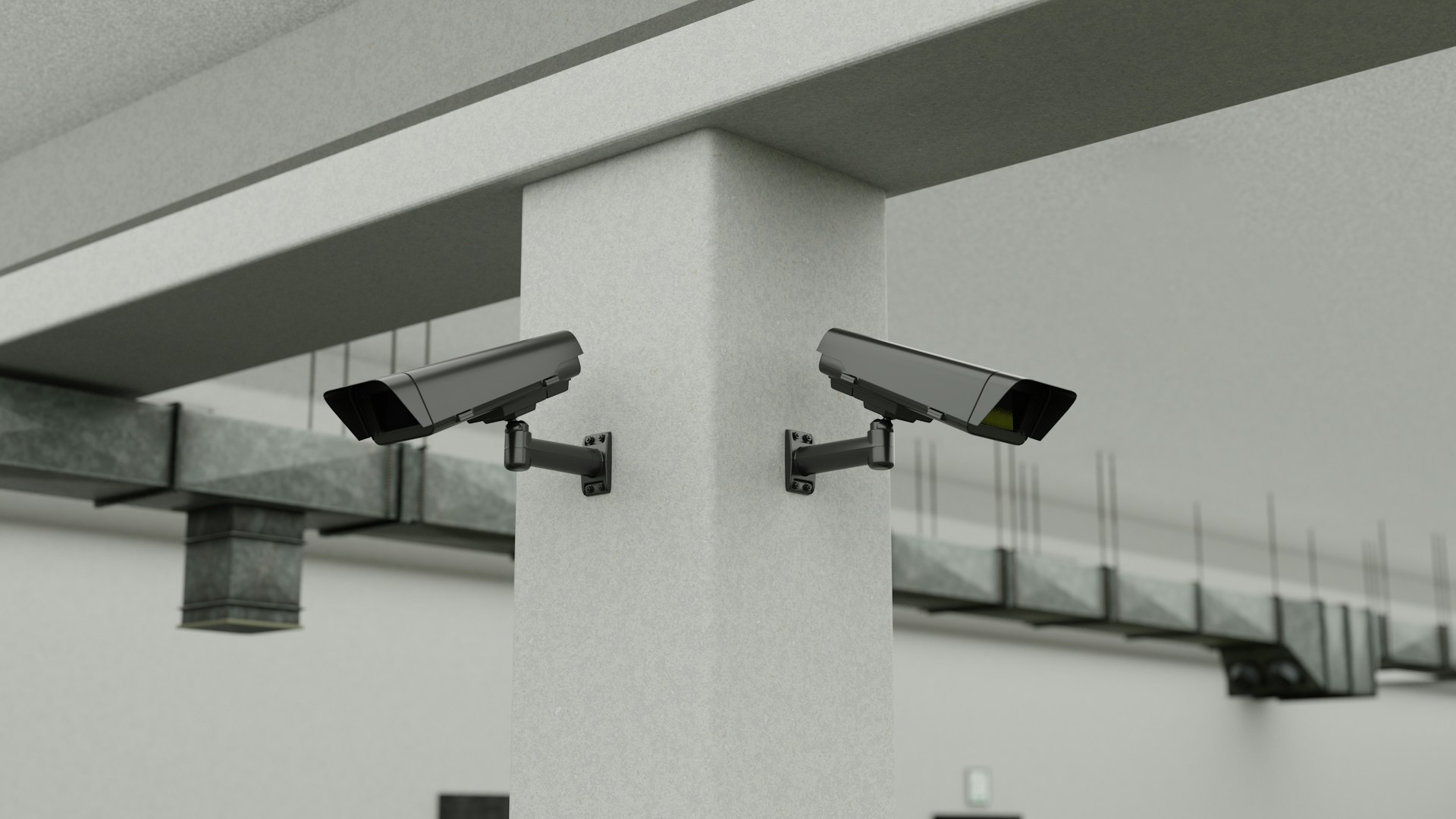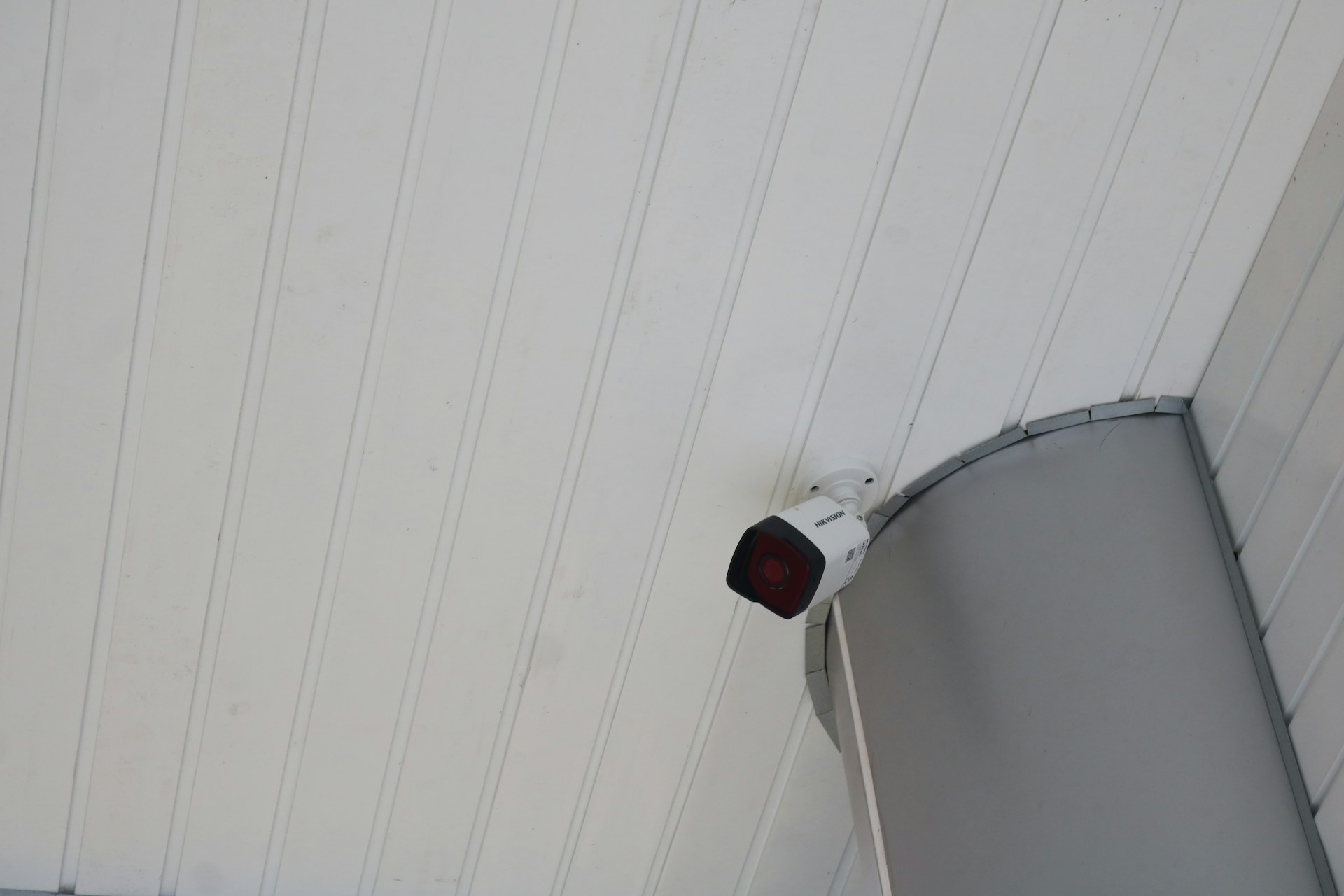Investing in a home security system can enhance your peace of mind, but you might wonder whether it can also provide financial benefits when tax season rolls around. Typically, a home security system is not tax-deductible unless your home serves as your principal place of business. Understanding the specific circumstances that make your security investments deductible can be crucial for effective financial planning.
When you use part of your home for business purposes, certain expenses, including security systems, may qualify for deductions. This can significantly impact your overall tax bill and help you maximize your potential savings. Exploring these possibilities can empower you to make informed decisions about your home security needs.
If you’re careful about record-keeping and aware of IRS guidelines, you might unlock tax benefits you didn’t know were available. Dive into the details to find out how you can take advantage of these opportunities while safeguarding your home and investment.
Is a Home Security System Tax Deductible?
Understanding the tax implications of home security systems can help you make informed financial decisions. While home security systems generally are not tax-deductible, specific circumstances may allow for deductions. Here’s what you need to know.
Overview of Home Security System Deductions
Typically, expenses related to a home security system are treated as personal expenses. The IRS classifies these costs as nondeductible if the system is used solely for personal property protection. Common expenses include installation, monitoring, and maintenance fees.
For home security systems to be deductible, they must serve a dual purpose—such as securing a home office or rental property. In such cases, you can only deduct the portion of expenses that pertains to the business use of your property. This distinction is crucial for accurate claiming.
Circumstances Where Deductions Apply
You can potentially deduct home security expenses when you qualify under specific conditions. If your home serves as your principal place of business, you may be eligible for deductions based on the business use percentage. For example, if you use 20% of your home for business operations, you can deduct that same percentage of your security system expenses.
Additionally, if you rent out part of your home or a separate unit, the expenses related to the security system protecting that rental property may also be deductible. Ensure you keep accurate records and documentation to substantiate your claims.
Tax Benefits for Business Use
When you integrate a home security system into your business, tax benefits may arise. According to IRS guidelines, if you install a system to protect business-related areas, you can deduct the maintenance and monitoring costs proportional to that space's use.
For instance, if your security system secures your home office, claim a percentage of its costs on your tax return. Be mindful of depreciation rules for larger installations as well. Consulting with a tax professional can provide deeper insights tailored to your unique situation.
By understanding these specifics, you can navigate the complexities of tax deductions related to home security systems effectively.
IRS Rules and Regulations for Deducting Home Security Systems
Understanding the IRS rules and regulations for deducting home security systems is crucial for maximizing potential tax benefits. Specific criteria and proper documentation are essential to ensure compliance with tax laws. Here’s what you need to know.
Qualifying Criteria for Deductions
To qualify for tax deductions related to home security systems, the primary requirement is that the system must be installed in a home used for business purposes. If you have a home office, a part of the security system's cost may be deductible. The IRS allows you to claim expenses proportional to the area of your home dedicated to business activities.
If you operate a rental property, the cost of a security system may also qualify as a deductible expense, provided it serves the rental unit. However, it is essential to document the specific business use of the system, as personal use may render the expense non-deductible.
Documentation and Recordkeeping
Accurate documentation is vital for substantiating any deductions claimed on your tax return. You should maintain detailed records that include receipts for the purchase and installation of the security system. Additionally, document any maintenance costs and monitoring fees, as these may also be eligible for deductions.
Keep records of how the system supports your business activities or rental operations. This could include photographs or descriptions of the areas being monitored or secured. Good recordkeeping will strengthen your claims and help defend against any potential audits.
Common IRS Limitations
The IRS has specific limitations on what can be deducted. For instance, if the security system is primarily used for personal safety, you may not claim any deduction. Only the portion related to business or rental use can be deducted.
Additionally, the Tax Cuts and Jobs Act made significant changes, limiting itemized deductions. Changes to the standards can impact how much you can claim for a security system, so staying informed about current regulations is crucial. Always consult a tax professional for the latest information and personalized advice based on your circumstances.
Home Office Deductions and Security Systems
You may be able to deduct some costs of a home security system if you use part of your home for business. Understanding your eligibility, the types of expenses involved, and how to calculate these deductions is crucial for accurate reporting on your tax return.
Eligibility for the Home Office Deduction
To qualify for the home office deduction, your workspace must be used regularly and exclusively for business purposes. This means that only the area of your home designated as a home office can be factored into your tax calculations.
If your security system protects this area, you may be eligible to deduct a portion of the costs. For instance, if your home office occupies 20% of your home, then you could potentially deduct 20% of the cost to maintain and monitor your security system.
Direct vs. Indirect Expenses
There are two types of expenses related to home offices: direct and indirect.
- Direct Expenses: These are costs solely associated with your home office. If you install a new security system specifically for your office space, the entire cost is considered a direct expense.
- Indirect Expenses: These costs benefit the entire home. For example, general home security services, which cover areas outside your office, fall under this category. You can claim a portion of these expenses based on the percentage of your home used for business.
Understanding the distinction between these expenses can maximize your deductions.
Calculating and Reporting Deductions
When calculating deductions for security systems, note the percentage of your home that serves as an office. If your total security system cost is $1,000 and your office occupies 15% of your home, you could deduct $150 as a direct expense.
On your tax return, report these deductions under the home office expenses section. Ensure that you maintain accurate records of all related expenses, including invoices and payment confirmations, to support your claims in case of an audit. Proper documentation is key to a smooth filing process.
Maximizing Tax Savings with Home Security Deductions
You have several avenues to explore when it comes to maximizing tax savings associated with home security systems. Understanding methods like the actual expense method, the simplified home office deduction, and depreciation of security systems can help you effectively manage your tax liabilities.
Actual Expense Method
Under the actual expense method, you can deduct the costs related to your home security system if your home serves as your principal place of business. This might include installation, monthly monitoring fees, and maintenance costs.
- Document All Expenses: Keep detailed receipts and records. This ensures accuracy when claiming your deduction.
- Percentage of Business Use: Calculate the percentage of your home used for business purposes. If your office takes up 20% of your home, you can deduct 20% of your security system expenses.
This method can lead to significant tax savings if properly applied.
Simplified Home Office Deduction
If you prefer a more straightforward approach, consider the simplified home office deduction. The IRS allows a flat rate per square foot of your home used for business.
- Eligibility: You must regularly and exclusively use part of your home for business.
- No Need for Specific Deductions: When using this method, you will not separate your security system expenses from other home expenses.
This could make documentation easier, while still allowing you to benefit from security-related costs.
Depreciation of Security Systems
If your security system is classified as a capital expense, you may be eligible to depreciate its cost over several years. This is particularly relevant for more expensive systems where immediate deduction is not feasible.
- Life Expectancy: Generally, the IRS allows a depreciation period of five to seven years for security systems.
- Business Use: Ensure that the system is primarily for business use to qualify for depreciation.
This long-term deduction can help lower your taxable income over time, giving you additional tax benefits. By maximizing these strategies, you can make the most of your home security expenses as business deductions.
Special Considerations and Recent Tax Law Changes
When considering the deductibility of home security systems, it is essential to recognize how recent tax laws influence your potential deductions. This section explores specific considerations based on tax regulations that may affect you.
Impact of the Tax Cuts and Jobs Act
The Tax Cuts and Jobs Act (TCJA) significantly impacted home office deductions. Under the TCJA, many employees are no longer eligible to deduct unreimbursed expenses for home office setups, including security systems. This change means that if you work remotely as an employee, you cannot deduct the costs of installing or maintaining a home security system.
However, if you are self-employed and use part of your home regularly for business, you may still qualify for deductions. You can include a portion of security costs in the home office deduction, provided you keep accurate records of your expenses.
Employee vs. Self-Employed Status
Your employment status directly influences your ability to claim security system costs on your taxes. If you are self-employed, you may deduct expenses related to a home security system if it safeguards your business assets. This deduction is typically calculated based on the percentage of your home used for business.
Conversely, if you are an employee, the rules are stricter. The IRS does not permit employees to deduct these expenses since they are considered personal expenses. You can only take home office deductions for certain qualified home office expenses if you meet the IRS guidelines.
Handling Limitations and Carryovers
There are specific limitations and carryover provisions when claiming home office deductions for security systems. As a self-employed individual, you can only deduct expenses to the extent that they do not exceed the gross income generated from that business area.
If your deductions exceed your income, you may carry over the excess to future tax years. It is crucial to maintain records and documentation to substantiate the costs associated with the home security system, as the IRS may require details if you are audited.
Frequently Asked Questions
Understanding the tax implications of home security systems is crucial for homeowners. Here are some common questions and answers to guide you through the specifics.
Can I claim a home security system on my taxes?
You generally cannot claim a home security system as a tax deduction if it is used solely for personal safety. However, if you use part of your home for business, you might deduct some of the expenses related to a security system.
What home security expenses are deductible for income tax purposes?
Expenses related to a home security system might be deductible if the system is used for a home office. This can include a portion of the system’s cost, monitoring fees, and installation charges if they are directly associated with your business activities.
Are there any tax credits available for installing a security system in my home?
Currently, there are no specific federal tax credits for installing a home security system. Tax deductions are generally more relevant, particularly if the system aids in a home business or office setup.
How does a home security system impact home office deductions?
If you operate a business from home, a portion of your home security expenses may be deductible. The deduction is usually proportional to the size of your office compared to the total home area.
Can the installation of a home security system be included in property improvement for tax deductions?
The installation of a home security system can sometimes be seen as a property improvement. It is essential to document how the system enhances your home’s value if you wish to claim it as part of property improvements.
What IRS guidelines must be met to deduct home security expenses?
To deduct home security expenses, you must ensure they directly relate to a qualified business use of your home. The IRS guidelines stipulate that you maintain proper records and documentation for all expenses claimed.
.svg)



.svg)


.svg)



